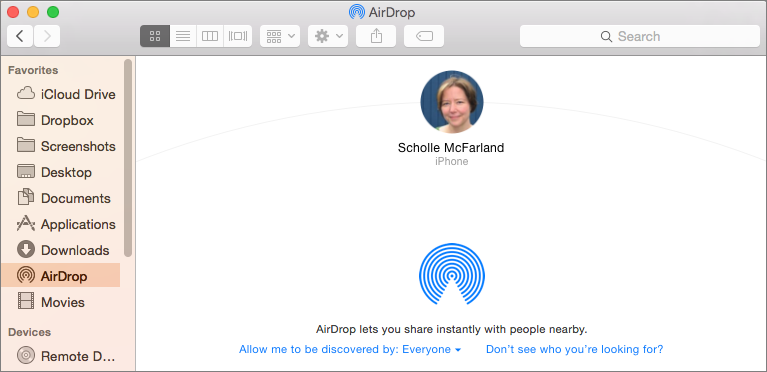

The options for macOS are fairly similar to those for iOS and iPadOS: AirDrop is here, as you would expect, and can be customized as needed. Lastly, you can opt to be Hidden, which means your device will only be visible while Nearby Share is actually open.You can find the macOS AirDrop settings in Finder. You can turn on the toggle switch next to All contacts so you’re visible to everyone in your address book, or you can turn it off to choose the names of the people you want to be visible to one by one. The second option available is Contacts, which limits the people who can send you files to the names on your contacts list. But don’t worry-your phone won’t download anything without you agreeing to it first. The options are Everyone, which means anyone around you with an Android device will be able to send you a transfer invitation.

To set who can share files with you, select Device visibility from the Nearby Share menu. Once it’s on, you’ll see Nearby Share as an option whenever you tap the Share button on your device (on Android, this button looks like a “less-than” sign). It should be on by default, but you can also enable it manually. Find it on devices running Android 6 or later by entering Settings, then navigating to Google, Devices & sharing, and Nearby Share. A key note: For AirDrop to function, you must enable both Bluetooth and WiFi, but you don’t need to connect to an actual WiFi network.Īndroid has had several AirDrop-like options through the years, and the latest is called Nearby Share. This type of link enables Apple devices to send files to each other, relying on Bluetooth to establish the connection and WiFi to handle the data transfer. Your iPhone, iPad, and Apple computer can all connect directly to other Apple devices via AirDrop. Each operating system-iOS, macOS, Android, and Windows-offers its own method, and once you know how each one works, you’ll be able to pick the best option for the devices you have. Your phone and computer both come equipped with wireless transfer protocols that let you share files securely, sometimes without even revealing your phone number or email address. In fact, to keep prying eyes away from your data, we recommend you send your files through a direct device-to-device connection. But not all of your options are equally secure. There are dozens of ways to wirelessly share files, from attaching them to an email to uploading them to social media.


 0 kommentar(er)
0 kommentar(er)
